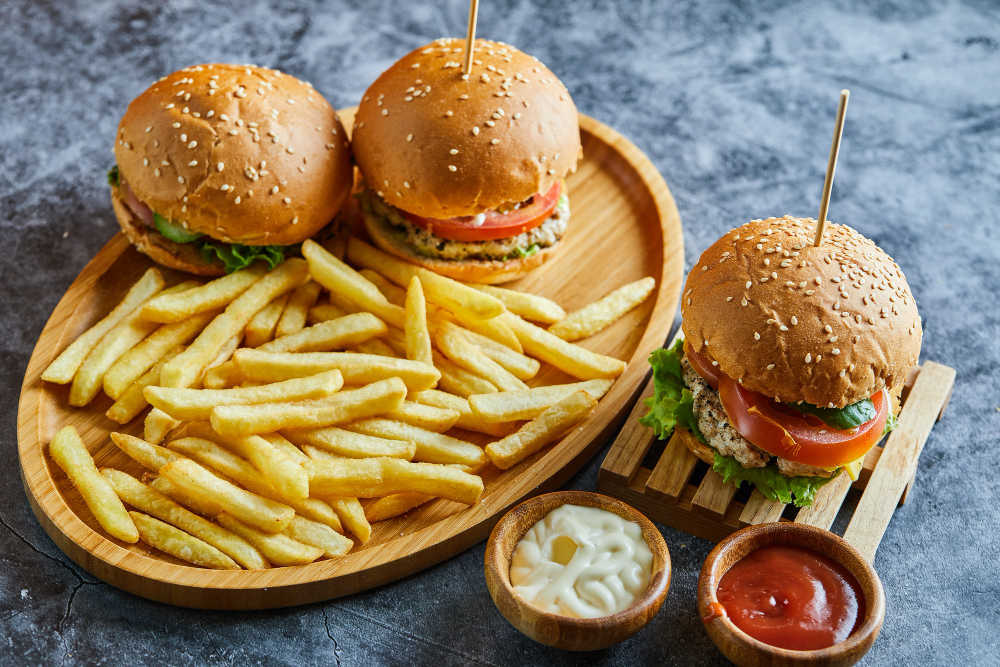How to Start a Fast Food Business in Nigeria

How to Start a Fast Food (QSR) Business in Nigeria: Equipment, Workflow, Setup Cost & Profitability
Fast food (quick service) thrives on speed, consistency, and menu engineering. If you plan to sell fried chicken, burgers, shawarma, jollof, or rice bowls at scale, your kitchen line must be compact, safe, and capable of peak-hour output without breaking. This blueprint covers equipment selection, capacities, realistic budgets, and the math behind profitable portions.
Why Fast Food Works
- High frequency: Office workers and students buy convenience daily.
- Operational simplicity: Limited menus with standardized prep.
- Multi-channel sales: Dine-in, takeaway, delivery apps, and catering.
Profitability Snapshot
Strong QSRs pursue 30%–50% gross margin after food cost, then attack power and labor to lift net. Sample chicken & sides model:
| Metric | Assumption | Estimate (₦) |
|---|---|---|
| Average tickets/day | 250 orders @ ₦3,000 | ₦750,000 revenue/day |
| Food cost | 38% (chicken, oil, packaging) | ₦285,000 |
| Operating cost | Labor, rent, power, disposables | ₦360,000 |
| Daily profit | — | ₦105,000 |
| Monthly profit (26 days) | — | ₦2,730,000 |
| Break-even | Capex ₦7.5m; monthly profit ₦2.73m | ~3 months |
Line Design & Workflow
- Prep zone: Marination, portioning; cold storage close by.
- Cook line: Fryers, griddle, range (sauces/rice), with hood and fire suppression.
- Hot holding: Display warmers/heat lamps to buffer peak demand.
- Pass/assembly: Standard build sheets; label orders for delivery.
- Dish/waste: Keep dirty flow away from the pass; grease traps installed.
Equipment & Capacities (Nigeria, 2025)
Size equipment to peak hour throughput. Oversizing increases capex and operating cost; undersizing kills speed.
| Equipment | Use | Spec/Capacity | Est. Cost (₦) |
|---|---|---|---|
| Double Deep Fryer | Chicken, chips | 2 × 16–20 L | 350,000 – 900,000 |
| Pressure Fryer (optional) | Faster chicken fry | Broaster-style | 1,200,000 – 2,500,000 |
| Griddle/Contact Grill | Burgers, wraps | 600–900 mm | 180,000 – 450,000 |
| Shawarma/Rotisserie | Rotating spit | 1–2 burners | 180,000 – 450,000 |
| Rice Cooker/Range | Rice & sauces | 20–30 L or 4–6 burners | 120,000 – 500,000 |
| Hot Display Warmer | Hold cooked items | Countertop/Service | 200,000 – 600,000 |
| Upright Refrigerator | Chilled storage | Single/Double door | 300,000 – 800,000 |
| Chest/Blast Freezer | Frozen storage | 300–600 L | 300,000 – 900,000 |
| Exhaust Hood & Ducting | Ventilation/safety | Custom to line | 300,000 – 1,100,000 |
| SS Tables, Shelving, Sinks | Prep & hygiene | — | 200,000 – 700,000 |
| Power Backup | Uptime assurance | Inverter/Gen (7–15 kVA) | 400,000 – 1,600,000 |
| Smallwares | GN pans, tongs, scales | — | 120,000 – 350,000 |
Setup Cost Budget
| Category | Budget Range (₦) |
|---|---|
| Hot line & fryers | 2,000,000 – 5,000,000 |
| Refrigeration & freezing | 700,000 – 2,000,000 |
| Ventilation & fire safety | 400,000 – 1,300,000 |
| Stainless fabrication & smallwares | 300,000 – 900,000 |
| Power backup & electrical | 400,000 – 1,600,000 |
| Fit-out, signage, POS, opening stock | 500,000 – 1,200,000 |
| Total Estimated Setup | ₦4,300,000 – ₦12,000,000 |
Menu Engineering & Speed Tactics
- Short menu with high-margin anchors (e.g., chicken + fries combo).
- Pre-portion proteins; par-cook where appropriate to protect quality and speed.
- Use hot holding to smooth spikes; time-limit to maintain crispness.
- Batch sauces; standardize bun toasting and builds with visual station guides.
- Measure cook times, ticket times, and waste daily; adjust pars accordingly.
Final Thoughts
Fast food wins on reliability and throughput. With the right line plan and dependable fryers, grills, warmers, and refrigeration, you’ll serve more customers in less time and safeguard margins. Afess Industrial Kitchen Equipment can specify and install QSR cooking lines, warmers, refrigeration, ventilation, stainless stations, and power solutions to match your projected order volume. Contact Afess for a custom equipment schedule and opening checklist.